‘We don’t oppose the project, we oppose the process’: Islamic Society sues city over zoning board decision
| Published: 01-04-2024 4:53 PM |
When it was a homeless shelter, the old First Congregational Church site on North Main Street, got busy on winter nights when doors opened each evening and then again first thing in the morning when it closed.
When the church was an active parish with weekly services, churchgoers filled the parking lot and side streets on Sunday mornings.
At weekly services at the nearby mosque held on Fridays, plenty of parking was available for attendees.
Everyone had their time and no one had a problem. It was all part of a mutual agreement between local organizations, a shared understanding of faith and friendship with the Greater Islamic Society of Concord, said Ali Sekou, the current president.
Last year, the building was sold to local developers Ben Kelley and Jonathan Chorlian, who submitted plans to convert the former church into 30 apartment units. With it, will come new housing at a time when stock is much needed. But they needed special permission from the zoning board because they wanted to maximize the number of units and also scale back on the number of parking spaces.
The zoning board first said no, but later reversed course on a scaled-back proposal
The Islamic Society presented these concerns in front of the Concord Zoning Board of Adjustments at numerous hearings this summer and requested a re-hearing on a number of variances that the board approved in August. The motion for a rehearing was denied.
The Islamic Society has sued the City of Concord, arguing the zoning board’s process was flawed and the approval should be reversed so a rehearing can take place.
Article continues after...
Yesterday's Most Read Articles
 New Concord apartments open in former First Congregational Church
New Concord apartments open in former First Congregational Church
 Georgia’s Northside in Concord transitions into catering and cooking classes
Georgia’s Northside in Concord transitions into catering and cooking classes
 ‘Bittersweet’: The Post on Main Street closes Friday
‘Bittersweet’: The Post on Main Street closes Friday
 Inside EFAs: How school vouchers have fueled an enrollment boom at Christian schools across New Hampshire
Inside EFAs: How school vouchers have fueled an enrollment boom at Christian schools across New Hampshire
 Messy parking around Concord’s bus terminal won’t get less messy any time soon
Messy parking around Concord’s bus terminal won’t get less messy any time soon
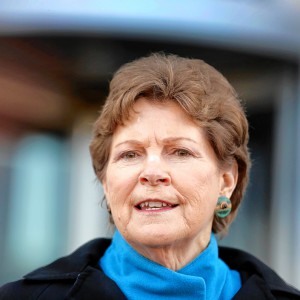 Stefany Shaheen, daughter of New Hampshire senator, launches House bid
Stefany Shaheen, daughter of New Hampshire senator, launches House bid
“We don’t oppose the project,” said Sekou, who was sworn in as a new Concord City Councilor this week. “We oppose the process and how it was done.”
Sekou wanted to be clear, the legal action does not mean the mosque’s members oppose the development. Sekou is working with Chorlian and Kelley to reach an agreement beneficial to all.
Kelley also hopes to resolve the dispute without going to court. Now the developers are looking at the property layout and driveway to see if parking could be made available for the mosque.
“Now that we have our zoning approval it’s a balancing act,” he said. “But we are cautiously optimistic that we can reach some settlement terms with them.”
When Chorlian and Kelley first purchased the brick and granite church in October, creating 34 one and two-bedroom apartments was the goal.
Previously the building served as the emergency winter shelter site for the Concord Coalition to End Homelessness. After development costs were too expensive for the coalition to convert the building into housing for clients, it was sold to Chorlian and Kelley.
Zoning codes and ordinances outline regulations for density and development in the city. At the church site, just eight units of housing would have been allowed. Chorlian and Kelley wanted to combine lots to expand the site to support more units but they still had to request a variance in front of the zoning board of adjustment.
The developers first went in front of the board in July with their plans for 34 units.
“What we see doing well are not these massive 1,000 sq ft, two-bedroom units, but a little on the smaller side,” he said.
The request was denied at the time on a 2-3 vote, with concerns about the building density in the neighborhood.
In August, the group came back to the board with an adjustment to their plans to reduce the project to 30 units.
Yet density remained a concern of the Islamic Society, as well as procedural error with the new application, said Brian Shaughnessy, an attorney representing the group.
When the building was utilized as a church, Sunday services and other meetings meant that the parking lot only filled once or twice a week.
Now, with a proposal for apartments, tenants will park in the lot that abuts the Islamic Society’s mosque.
“That’s a big difference if you’re using it like the Coalition was using it or if you’re using it for a church, you’re going to have people in apartments right up against that wall of the Islamic Center,” he said. “How will a firefighting be getting to that apartment?”
With more residents in the building, Shaughnessy also worried about traffic around the property with Pearl and Washington streets on either side established for one way travel.
“The parking is a problem, the traffic is a problem, the density is a problem,” he said. “It’s a life and safety issue.”
Shaughnessy argued that the reduction from 34 to 30 units made no material changes to the proposal because the number of bedrooms, 44, remained the same across both plans.
Still, the board approved the 30-unit proposal on a 4-1 vote after neighbors testified in support of the project and other Concord residents called for more housing in the city.
“These two buildings are unusual buildings, they’re not residential buildings right now, they’re peculiar buildings and they’re going to have to be neighbors not matter what,” said ZBA chair Christopher Carley. “I can say with confidence that this development is not creating a liability for the Islamic Center.”
Prior to filing for variances for the project, Kelley and Chorlian met with neighbors about the housing proposal. Most were in support, with the Islamic Society first raising concerns about the project, said Kelley.
“We had met with them quite a few times, even going back prior to us filing for any of the variances,” he said. “Just wanting to be good neighbors.”
After the board denied the Islamic Society’s request for a re-hearing on the site, the group filed a lawsuit against the City of Concord in October.
The lawsuit brings forth similar challenges Shaughnessy presented in front of the zoning board in August – the material changes of the second application as well as concerns about the density of the project given the city’s zoning ordinance.
As a result, the Islamic Society requested that the board grant a rehearing to the project and reverse any variances awarded. This would send the project back in front of the board, with a new public hearing on the matter.
Sekou said he is optimistic about finding a solution after conversations with Chorlian and Kelley.
“We will be working together based on an agreement,” he said. “We will be supporting them throughout the process.”

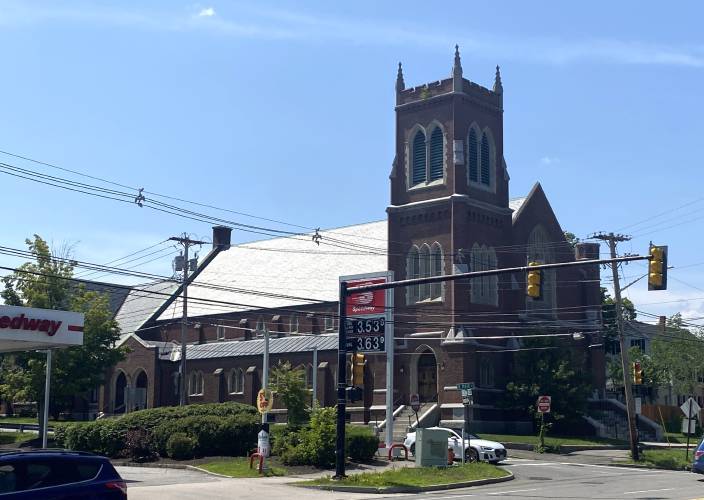
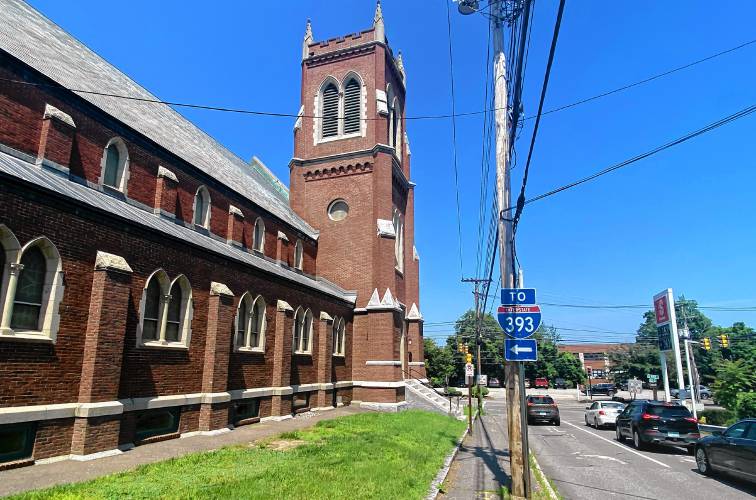






 Goodwell Foods takes over Rustic Crust private label frozen pizza
Goodwell Foods takes over Rustic Crust private label frozen pizza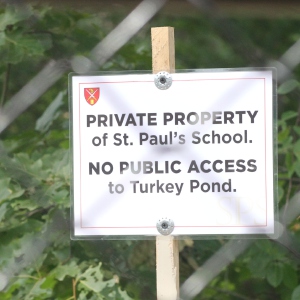 St. Paul’s School won’t reopen public access to Turkey Pond
St. Paul’s School won’t reopen public access to Turkey Pond Students address worldwide problems through Community Changemaker Challenge
Students address worldwide problems through Community Changemaker Challenge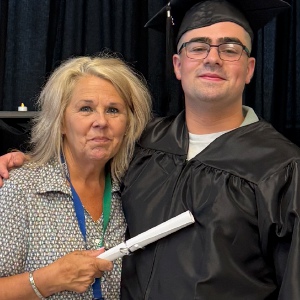 ‘It’s the first thing I’ve ever accomplished’: Graduates celebrate completing Second Start’s Adult Diploma Program
‘It’s the first thing I’ve ever accomplished’: Graduates celebrate completing Second Start’s Adult Diploma Program
